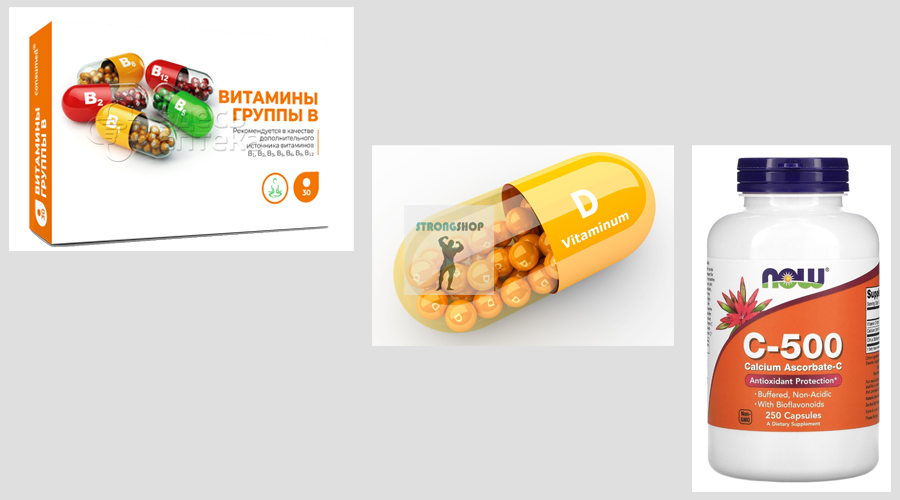The essential vitamins are C, D, and the B group — they provide health, energy, and steady strength growth.
They are easy to purchase in sports nutrition stores or pharmacies. Prices are generally moderate, but the benefits are truly significant — not only for workouts but for overall health.
Let’s take a closer look at each one.
Vitamin C
Role for athletes:
- acts as an antioxidant, reducing oxidative stress during intense training;
- strengthens blood vessels and improves oxygen delivery to muscles;
- supports the immune system, which is essential for consistent training;
- accelerates post-workout recovery.
Why it’s important for strength training: helps you recover faster, reduces inflammation, and protects muscles from microdamage. It’s especially relevant for fitness and strength sports.
Vitamin D
Role for athletes:
- increases strength and endurance;
- strengthens bones and joints, reducing fracture risk;
- regulates hormonal balance, affecting testosterone levels;
- improves overall well-being and workout progress.
Why it’s a basic sports vitamin: Vitamin D deficiency is common, especially during the winter months. For bodybuilding and strength training, it’s crucial — bone health and injury prevention depend on it.
B Vitamins
Role in the body:
- participate in energy metabolism, converting carbohydrates, proteins, and fats into energy;
- support the nervous system and reduce stress;
- accelerate muscle fiber growth and tissue regeneration;
- help maintain high endurance levels.
Why athletes need them: without B vitamins, progress in strength training slows down, and fatigue sets in faster. That’s why complexes containing B vitamins are a common part of sports nutrition programs.
Practical recommendations
- The foundation should always be nutrition and natural vitamin sources: citrus fruits and vegetables (vitamin C), fatty fish and eggs (vitamin D), meat and grains (B vitamins).
- When a deficiency is confirmed, sports vitamin complexes are beneficial, especially during intense training periods.
- Safe vitamin dosages:
- C — 500–1000 mg per day,
- D — 1000–2000 IU (25–50 mcg). Higher doses may be needed but only after a blood test for 25(OH)D and consultation with a doctor,
- B group — as part of complexes.
Conclusion
Strength training places high demands on the body. Muscles, ligaments, joints, and the nervous system all work at their limits, and without enough vitamins, recovery slows and the risk of injury increases. That’s why it’s so important to know which vitamins are necessary for workouts — especially for beginners in fitness and bodybuilding.
The essential vitamins for strength training — C, D, and the B group — are the foundation of an athlete’s support system. They help you recover faster, train more efficiently, and strengthen your health.
For beginners and recreational lifters, this foundation is the starting point for steady progress and sustainable results.
Frequently Asked Questions About Essential Vitamins for Strength Training
Which vitamins are most important for strength training?
The key ones are C, D, and the B group. They are responsible for recovery, immunity, muscle growth, and bone health.
Can you do without supplements?
With a balanced diet, some needs can be met through food. But with deficiencies or heavy training loads, supplements help restore optimal levels.
What happens when athletes lack vitamins?
Endurance decreases, recovery slows down, and the risk of injuries and illnesses increases.
Are these vitamins suitable for both men and women?
Yes, they are universal and essential for everyone who engages in strength training.



